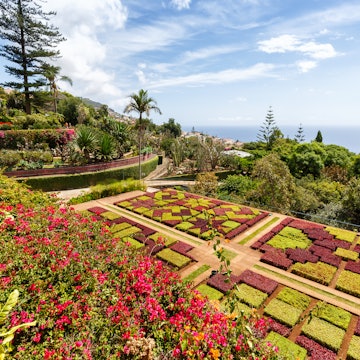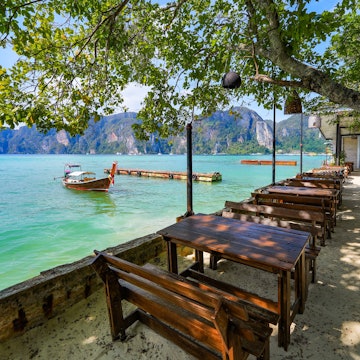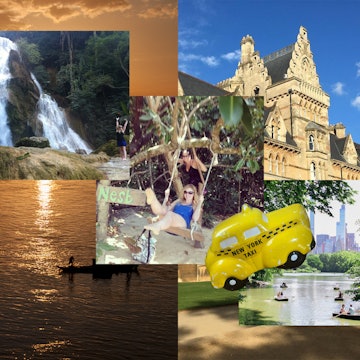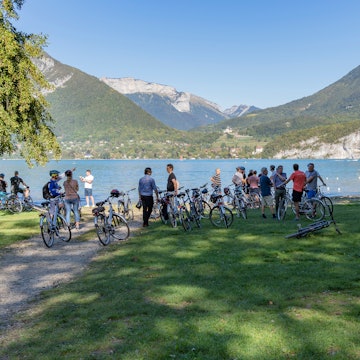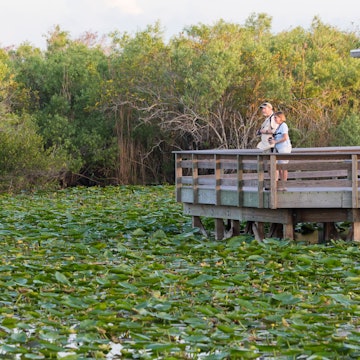
Meet Sir Ranulph Fiennes, the world’s greatest living explorer
Jan 10, 2020 • 10 min read

Sir Ranulph Fiennes, the world's greatest living explorer © garysalter
Sir Ranulph Fiennes has been labelled the world's greatest living explorer by the Guiness Book of World Records, and some of his monumental efforts, such as travelling around the world's surface vertically, crossing both its poles in the process, have yet to even be attempted by anyone else since his doing so.
Yet this inspiring man, who has climbed both Everest and the North Face of the Eiger in his sixties, and even cut off his own frostbitten fingers in his garden shed, has some human frailties you wouldn't expect: a fear of heights and propensity to be lazy. Here, prior to an upcoming talk at The Adventure Travel Show, we sit down with the living legend to learn more about his life, his travels and his goals.
On your expedition up the White Nile in 1969 by hovercraft you didn’t even stop to see the Pyramids of Giza. Are travel and exploration good bedfellows, or can one get in the way of another?
During that expedition we were all on leave from the army, so the driving force in the back of our minds was that we wanted to cover the entire river, some 3000-4000km, in the time we had available. We needed to get back on time. To some extent, it was that I was fighting a war in Oman and we were outnumbered; if I turned up late from leave it would look like cowardice. So we had every reason mentally to be in a rush, and therefore we didn't slow down to appreciate local culture.
When you’re exploring without such tight time constraints, do you take the time to enjoy the surroundings or are you solely focused on the goal ahead?
It depends. If you’re in the Arctic or Antarctic, there is nothing to enjoy other than ice. There are no birds or animals or even bacteria. If there is something other than whiteness, then it is likely not a good thing. In the Arctic it means there is trouble; other colours there could mean open water, which you don’t want when you’re man hauling, or 10-20m high pressure ridges of ice blocks getting in the way. In the Antarctic its similar, changes of colour usually mean crevices. So in these environments, you want just whiteness and boringness. That said, when you're being paid to write a book about it, you want it to be exciting. Even if you have a thesaurus, 100,000 words to describe whiteness is challenging. Of course you don’t want people dying and falling into crevices on an expedition, but dramatic problems are helpful in filling pages.
What do you think about while moving through the whiteness?
You are constantly ensuring you are on the right bearing. You constantly wonder if you should be going a bit left, a bit right, a bit east instead of north-south to stop damage to the sled runners if you go through sastrugi at the wrong angle.
When you travel for leisure, do you still find yourself exploring? Whether in a city or wilderness area?
On a holiday? I have to say that I haven’t been on a holiday in years. And I’m not sure I can remember what one does on holidays. With my late wife Ginny I went on quite a lot of holidays. But now it’s mostly travelling for lectures. Before my daughter went to school, she and my wife Louise would travel with me. By the time Elizabeth was four she already had more than a 100 stamps in her passport.
So does your daughter have the travel bug?
I think she had enough of it when she was little. When on airplanes I can remember my wife would sit on the aisle, me at the window and Elizabeth in the middle. She used to stand up on her seat when Louise was asleep and tickle the head of the person in the row in front of her. Needless to say, sometimes those passengers didn’t have a sense of humour.
Speaking of growing up, who was your biggest influence?
My dad. His life inspired me to want to be what he was: Colonel of the Royal Scots Greys regiment. But because I didn’t get A levels I couldn’t get to Sandhurst, which meant I couldn’t rise above the rank of captain.
He passed away before you were born, was it your mother who regaled you with stories of him?
Yes, she certainly did. And when I went into the army – I joined the regiment 18 years after the War – there were quite a few who still remembered my dad, all with affection. His nickname was “Lugs”. He must have had big ears, although in the photos I’ve seen they don’t look big. But someone who knew him said they were like Tony Blair’s.
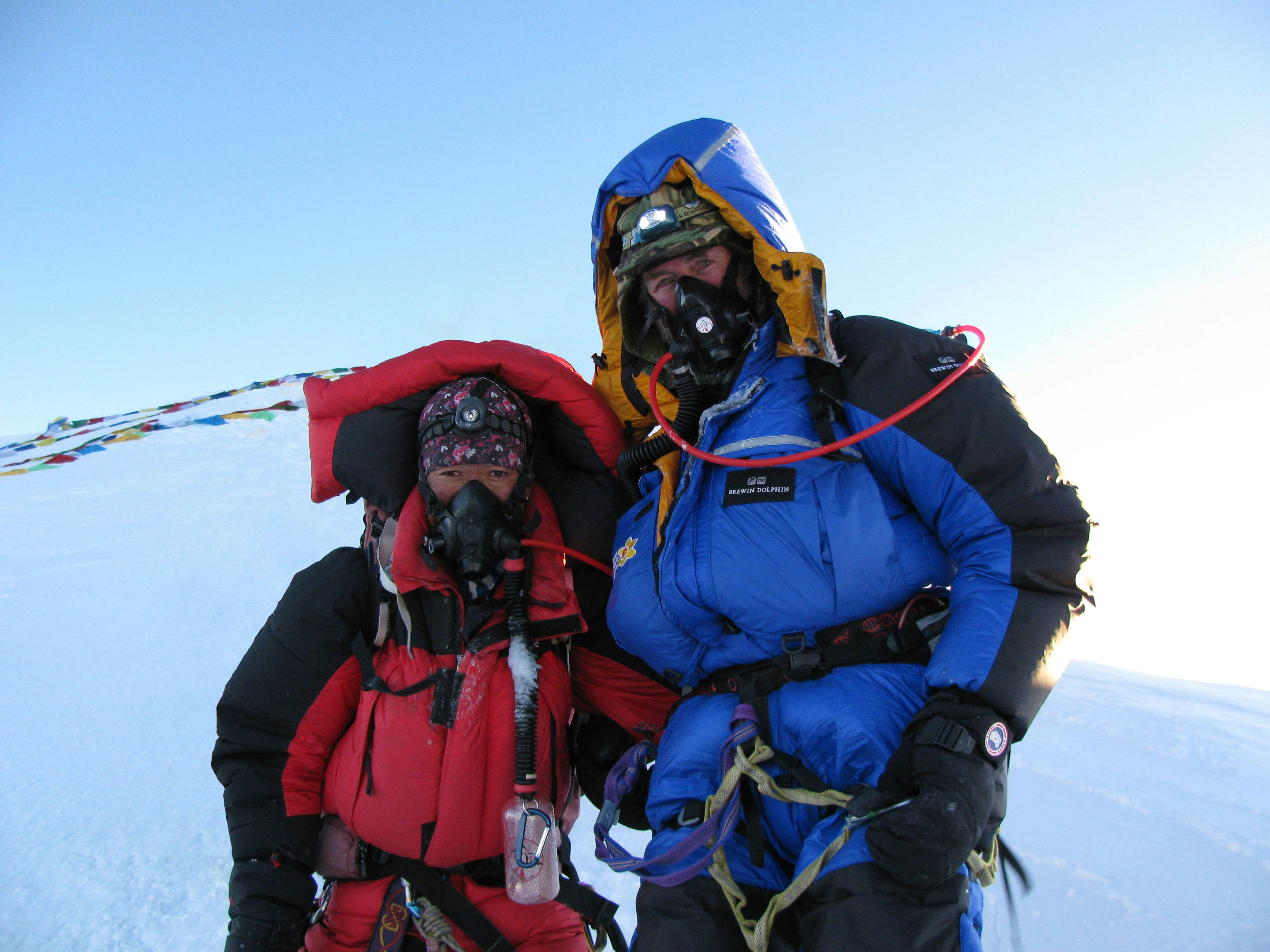
Some of your expeditions, such as summiting Everest at the age of 65 have received much press and accolades. Are there some that were a particular favourite of yours that didn’t get the hype you thought they’d deserve?
The Transglobe Expedition was really the first trip around the Earth vertically, and yet because PR wasn’t something we knew about in those days the journey wasn't widely reported. Somebody did manage to get the Observer to provide exclusive coverage, but that only managed to dampen down general press coverage because other papers couldn't run it. So it wasn’t until two years through the expedition, after completely crossing Antarctica (which had never been done by a single team before) and on our way up through the northwest passage – the first open boat journey through the route – that our expedition became known to the greater public. And that was only because ITN captured footage of our base camp virtually burning to the ground.
One of your lesser-known expeditions that caught my attention was your long search for the lost city of Ubar in Oman.
Yes, that was actually eight different expeditions in the same desert. It wasn’t until the last one that we actually found the city. In the end it was good luck rather than anything provided to us by NASA. The space agency helped us find where it wasn’t, which was actually useful via elimination. Yet it came down to me overhearing some officials from the Oman's Ministry of Heritage speaking on the other side of a building (they didn’t know I was listening); they’d come to the conclusion that our American film crew were happy to just be in the country to filming pots of Dhofar, and had no intention of finding Ubar. With fear that they'd report us to the Sultan, who'd only given us permission to film as part of a search for the lost city, I rushed to our archaeologist and said: “Yuri! You have to get your team to start digging or these officials are going to go to the Sultan and saying we are not genuine.” Reluctantly, he got his team to start digging near our base camp where there was a waterhole. Within three days Yuri was plucking out 2000-year-old chess sets. And that was that, we’d found the city.
You’ve mentioned luck in a lot of your books. Is it just pure luck, or do you think manufacture your luck with hard work and preparations?
Oh, very much the former. Shackelton’s great word was "provi" for providence, and he too was a great one on luck of the Irish.

You’ve climbed Everest, Kilimanjaro, Elbrus and even the North Face of the Eiger, what is your favourite climb?
My least favourite is anything that has drops. Everest doesn’t have drops. On either of the standard routes up the mountain you have a rope, and when you look down you have a white slope; not a white drop, but a white slope. And it’s the drop that gives me vertigo. The last bit of the climb before the summit has a bit of a drop at the Hilary Step, so we did it at night so that I couldn’t see it.
Given your battles with vertigo, how did you handle the North Face of the Eiger?
I hated the Eiger. It cured me of ever wanting to go up another mountain.
What would be your darkest moment of any expedition?
That is not an easy one to answer. If someone had ever died, I would have said that.
And what would be your highest moment on expedition?
I would say it was on the Transglobe Expedition. It had taken us seven years of working unpaid full time to plan and get 1900 sponsors, and three years of constant travelling from setting out to finish – 10 years of our lives – and knowing we might fail at the last minute, which we nearly did, made completing the last hurdle a highlight. It was when our ice flow, on which we’d been floating for three months in the Arctic, came into sight and then touching distance of our waiting ship (also lodged in ice). The odds of our ice flows meeting must have been 10 to one against.
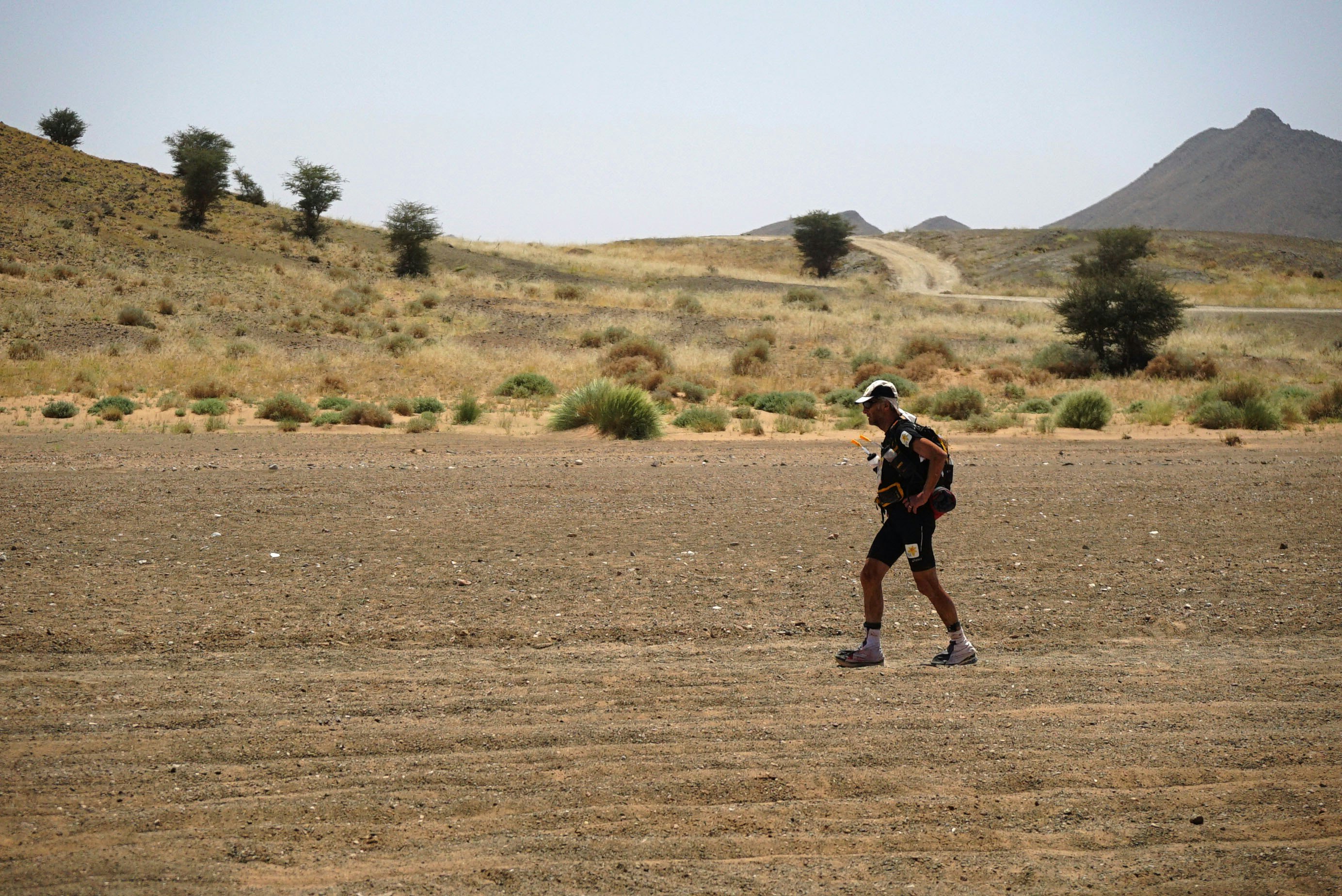
Given your polar expeditions, and having also taken on and completed the Marathon des Sables, is cold or heat your bigger adversary?
Cold is more difficult, but don’t underestimate the difficulty of keeping cool in the heat.
How do you manage risk?
I carefully study why my predecessors have failed at similar records, and it’s always because they hit a risk. And while those expeditions did their best to try and work out a way to overcome that risk, I don't think of another way to solve it. Instead, I take the approach that it’s better to just try and avoid that risk altogether, even if it meant going extra days in the wrong direction.
How to you weed out the thousands of applicants for your expeditions?
I paint a black picture. On one occasion I needed to pick just two people out of 8000 applications, so we warned all of them that I’m horrible, the expedition would be horrible – no pay, no expenses, nothing for three years, no glory. Those that stay can’t complain. I also make all applicants join the territorial SAS.
Were you born a leader, or did some experiences turn you into one?
I wouldn’t say that I’m a born leader. I just much prefer to be the leader than to suffer the consequence of someone else’s bad decisions.
I’ve read that you’ve said your worst attribute is that you have to fight against laziness – given your record of achievements, I find that hard to believe. How did you overcome it?
I don’t think I did.
How does your kit bag differ now that from your early days of exploration? Any invaluable piece of kit you can longer do without?
I don't go anywhere without GPS, satellite navigation and a satellite phone. Those three things now make things considerably different at the end of the day. In the early days, after 10 hours of man hauling, while the other bloke is setting up the tent and getting coffee ready, you – at your coldest – would be setting up a trident, getting the bubbles level, likely having to take your gloves off now and again. Then you'd need to struggle with the nautical almanac and sight reduction tables. Now if you want to know where you are you simply grab a coffee and press a button on your sat phone.
You’ve made a habit of achieving incredible "firsts" in the world’s polar regions. What made you first look at the poles as a target?
It was really the Transglobe Expedition, which took in both poles. After that success, we started getting more specific with polar firsts, whether unsupported, with no machinery etc.
What is the greatest polar challenge left?
I know what it is. I failed attempting it three years ago. Crossing Antarctica during the polar winter.
How do you think climate change will affect polar exploration?
In the Arctic it already has. There is more water and less ice. In Antarctica it will change much more slowly due to the sheer amount of ice atop the landscape.
What is next?
My exploration partners – Anton Bowring, Mike Stroud and Oliver Shepherd – are looking at it at the moment, but the only thing I can say without alerting the opposition is that it is north and not south.
What would you like to see as your legacy?
I haven’t really thought about it. When you’re dead, you’re dead. It doesn’t really matter.
Sir Ranulph Fiennes will be talking at The Adventure Travel Show in London on 18 January 2020.














